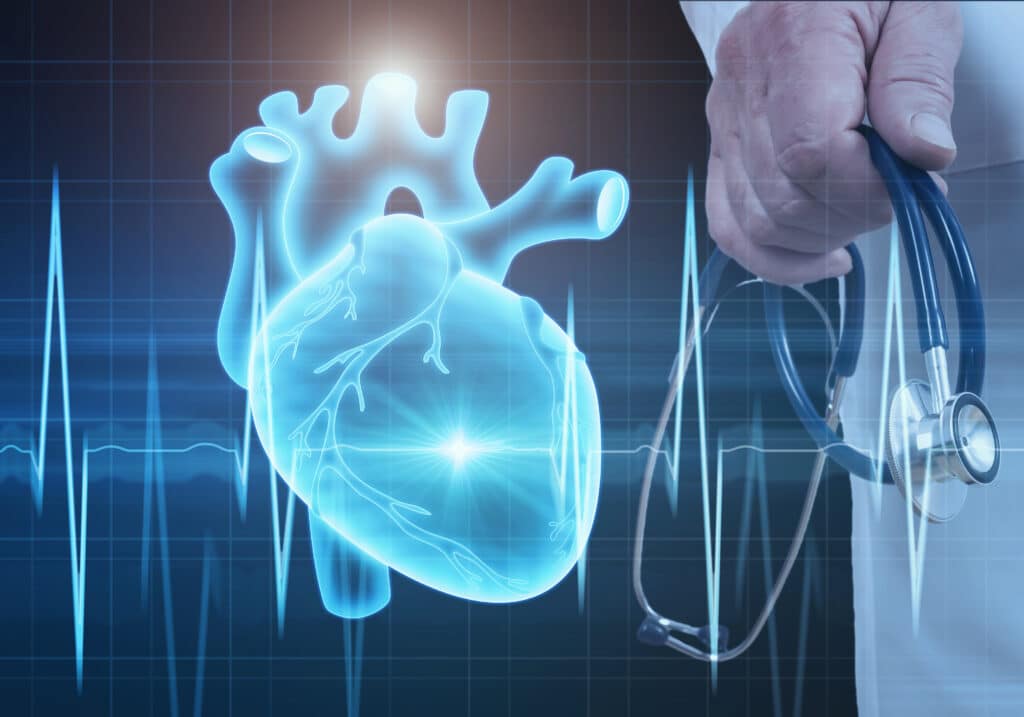Choosing the right Cardiologist near me: A patient’s guide to local heart experts
Choosing the right Cardiologist near me: A patient’s guide to local heart experts
Blog Article
Comprehending the Relevance of Cardiology in Modern Medical Care Services
Cardiology plays a vital function in modern-day medical care, particularly as heart problem continues to be the leading cause of mortality worldwide. Developments in diagnostics and treatment have transformed individual treatment, allowing earlier treatments and enhanced results. In addition, the change in the direction of preventative cardiology encourages people to handle their health and wellness proactively. As innovation remains to advance, the combination of ingenious options might better redefine cardiology's influence on public health, prompting a more detailed assessment of emerging fads and their ramifications.
The Prevalence of Cardiovascular Disease and Its Influence on Public Health And Wellness
Heart disease continues to be the leading reason of fatality worldwide, its influence prolongs far past individual people to influence public health and wellness systems and economies. The high frequency of heart illness places a significant stress on medical care sources, requiring increased financing for prevention, therapy, and rehabilitation programs. Public health and wellness initiatives need to address danger elements such as excessive weight, cigarette smoking, and less active lifestyles, which contribute substantially to the rising occurrence of heart conditions.Moreover, the economic problem connected with heart problem is tremendous, encompassing not only straight clinical expenses yet also indirect costs associated to shed productivity and premature mortality. Neighborhoods encounter obstacles in managing these costs, usually resulting in variations in medical care access and results. As the populace ages and lifestyle-related threats proceed to escalate, the urgency for effective cardiology interventions ends up being extremely important. Subsequently, addressing heart problem is not only a matter of specific wellness yet additionally a crucial public health and wellness concern.
Breakthroughs in Heart Diagnostics and Imaging Techniques
Current improvements in cardiac diagnostics and imaging methods have revolutionized the field of cardiology, enhancing the capacity to detect and monitor heart conditions. Strategies such as cardiac MRI, CT angiography, and echocardiography have become increasingly innovative, supplying in-depth pictures of cardiac frameworks and functions. These modalities enable the very early identification of conditions like coronary artery condition, cardiac arrest, and valvular disorders.Moreover, developments in non-invasive diagnostics, such as wearable innovation and remote surveillance tools, have actually encouraged patients and medical care providers. These devices help with real-time tracking of heart rhythms and other necessary indications, bring about prompt treatments. Furthermore, artificial knowledge is being incorporated into imaging evaluation, boosting accuracy and performance in diagnosis.
Innovations in Therapy Choices for Heart Issues
Recent innovations in cardiology have brought about considerable innovations in therapy options for heart problems. These include sophisticated medical techniques that boost procedural results and arising medicines that supply new opportunities for treatment. As the field progresses, these innovations play a crucial role in enhancing person care and results.
Advanced Surgical Techniques
Technologies in surgical methods have actually transformed the landscape of cardiology, using brand-new hope for clients with heart problems. Minimally intrusive treatments, such as catheter-based treatments, have greatly reduced healing times and hospital remains. Methods like robotic-assisted surgical procedure improve precision, permitting cosmetic surgeons to navigate complex anatomical structures with greater accuracy. Moreover, innovations in imaging technology facilitate real-time visualization during procedures, enhancing results. Transcatheter aortic valve substitute (TAVR) exhibits a breakthrough in dealing with aortic constriction, making it possible for shutoff substitute without open-heart surgical treatment. Furthermore, hybrid techniques that integrate medical and catheter-based methods provide tailored remedies for numerous heart problems. These sophisticated surgical techniques not just boost individual security but also increase therapy options, emphasizing the vital role of advancement in modern-day cardiology techniques.
Arising Medications and Treatments
As the landscape of cardiology remains to advance, arising therapies and drugs play a pivotal duty in improving treatment alternatives for heart disease. Innovations such as unique anticoagulants and advanced lipid-lowering agents have changed the administration of heart diseases, significantly reducing person morbidity and death. Furthermore, the development of genetics therapies and regenerative medication offers encouraging avenues for treating conditions formerly regarded incurable. Scientific tests are continuously exposing the efficacy of these treatments, pushing the borders of traditional therapies. Moreover, the combination of digital health and wellness technologies assists in personalized medicine, enabling tailored treatment strategies based upon hereditary and lifestyle aspects. Collectively, these developments emphasize the vibrant nature of cardiology, improving client results and redefining criteria of treatment in modern medical care.
The Role of Preventive Cardiology in Client Care
Precautionary cardiology plays a crucial role in patient care by focusing on the recognition of risk elements that contribute to cardiovascular disease. With way of life adjustment methods and very early detection techniques, health care carriers can properly lower the occurrence of cardio occasions - Dr Garcia. This aggressive technique not just enhances client results but also advertises long-term wellness
Danger Element Identification
While heart diseases continue to be a leading reason of morbidity and death worldwide, efficient danger element identification functions as a keystone of precautionary cardiology. Determining risk aspects such as high blood pressure, household, diabetes, and hyperlipidemia background is vital for early treatment. Health care professionals utilize numerous screening approaches to examine these factors, permitting for tailored safety nets. Furthermore, understanding a person's lifestyle selections, such as cigarette smoking and physical lack of exercise, additionally informs danger assessments. This detailed examination enables clinicians to create individualized treatment plans aimed at mitigating dangers. By focusing on risk variable identification, health care systems can boost client end results and decrease the total concern of cardio diseases, eventually adding to improved public health and wellness approaches and source allotment.
Way Of Living Alteration Techniques
A wide variety of researches highlights the crucial function of way of living alteration methods in minimizing heart disease danger. These approaches encompass nutritional modifications, raised physical task, smoking cigarettes cessation, and weight administration. By embracing a heart-healthy diet abundant in fruits, veggies, entire grains, and lean healthy proteins, people can decrease cholesterol degrees and blood stress. Normal exercise strengthens the heart and enhances general cardiovascular health and wellness. Furthermore, stopping over here cigarette smoking substantially decreases the danger of heart condition and improves healing rates for those with current conditions. Weight management even more contributes to cardiovascular health by reducing other risk variables such as diabetic issues and hypertension. Carrying out these way of life alters not only promotes specific health however likewise serves as a foundation of preventative cardiology in patient treatment.
Early Discovery Strategies
Lifestyle alterations considerably add to lowering cardio illness dangers, yet they are most efficient when coupled with very early discovery methods. Preventative cardiology emphasizes the importance of recognizing possible heart issues prior to they rise right into major problems. Methods such as blood pressure monitoring, cholesterol screening, and progressed imaging innovations like echocardiograms play crucial duties in examining cardiovascular health and wellness. Biomarkers and genetic screening also boost the precision of early discovery, enabling tailored precautionary strategies. Routine heart danger analyses encourage health care service providers to interfere proactively, potentially protecting against heart assaults and strokes (Cardiology Jupiter). By incorporating these early discovery techniques right into regular care, individuals can gain from timely way of life treatments and targeted therapies, ultimately improving and enhancing end results quality of life
Integrating Innovation Into Cardiology Practices
As advancements in technology remain to improve various fields, the combination of cutting-edge devices and systems right into cardiology practices has ended up being essential for enhancing client treatment and end results. Telemedicine systems allow cardiologists to monitor people remotely, improving access to care while decreasing the worry on medical care facilities. Wearable devices, such as smartwatches, enable continuous heart price surveillance, alerting both doctors and clients to prospective problems in real-time. Furthermore, synthetic intelligence (AI) is being made use of to evaluate huge amounts of cardiac information, assisting in very early medical diagnosis and tailored treatment web plans. Advanced imaging methods, including 3D echocardiography, boost visualization of heart structures, leading to a lot more accurate treatments. Electronic wellness documents (EHRs) enhance individual info management, ensuring that cardiologists have prompt accessibility to critical information. Together, these technological advancements are changing cardiology, advertising aggressive administration and improved wellness end results for clients with cardiovascular problems.
The Significance of Patient Education And Learning and Engagement
Individual education and interaction play a pivotal function in the management of cardio health. By outfitting clients with expertise about their problems, therapy options, and way of life adjustments, doctor empower individuals to take an energetic duty in their care. This positive strategy can result in enhanced adherence to suggested medications, dietary adjustments, and workout regimens, eventually lowering the threat of complications.Engagement also promotes a solid patient-provider connection, motivating open interaction and trust. When clients feel notified and entailed, they are most likely to voice concerns and ask questions, which can result in much better professional end results. Additionally, educational resources, such as workshops or digital systems, can enhance understanding and advertise self-management techniques. Generally, focusing on individual education and engagement is vital for boosting cardio health and wellness, enhancing top quality of life, and reducing health care costs connected with cardiovascular conditions.
Future Fads in Cardiology and Their Prospective Impact

Frequently Asked Concerns
What Lifestyle Changes Can Reduce Heart Condition Threat?
The present question addresses lifestyle adjustments that can considerably decrease cardiovascular disease risk. Cardiology care. Adopting a well balanced diet plan, participating in normal exercise, preserving a healthy and balanced weight, managing stress, and avoiding cigarette can significantly improve useful source cardio health and wellness
How Can I Identify Early Indicators of Heart Troubles?
Recognizing very early indications of heart issues includes tracking signs such as upper body pain, lack of breath, fatigue, and irregular heart beat. Prompt recognition of these indicators can trigger required clinical analysis and intervention for far better outcomes.
What Are the Distinctions In Between Cardiologists and Cardiac Surgeons?
The distinctions between cardiologists and heart surgeons hinge on their duties; cardiologists mostly take care of and detect heart disease via non-invasive techniques, while heart surgeons do medical procedures to fix architectural heart issues. Each plays an important, distinctive role.

Just how Usually Should I Obtain My Heart Health And Wellness Checked?
The frequency of heart wellness checks differs based upon private risk factors. Usually, grownups ought to undergo analyses each to two years, while those with present conditions might need more constant evaluations as advised by medical care experts.
What Role Does Genes Play in Heart Illness Risk?
Genes greatly influences heart disease threat, with familial patterns showing inherited problems. Certain genes can incline individuals to high blood pressure, cholesterol issues, and various other cardiovascular problems, highlighting the value of genetic testing in assessing heart wellness. Heart disease continues to be the leading cause of fatality globally, its effect extends much past individual people to impact public health systems and economic climates. Public wellness efforts have to deal with threat factors such as weight problems, cigarette smoking, and sedentary way of lives, which add significantly to the increasing occurrence of heart conditions.Moreover, the economic concern linked with heart disease is enormous, including not just direct medical costs yet likewise indirect expenditures related to lost efficiency and early death. Preventive cardiology plays a vital duty in patient care by focusing on the identification of risk aspects that add to heart condition. Artificial intelligence (AI) and device discovering are boosting diagnostics and person surveillance, making it possible for early detection of heart diseases. The differences between cardiologists and cardiac cosmetic surgeons lie in their functions; cardiologists mainly handle and diagnose heart conditions through non-invasive methods, while cardiac surgeons perform surgical procedures to correct architectural heart concerns.
Report this page